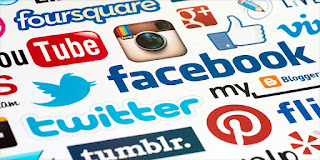Social media has been increasingly used as a tool to combat human rights violations. In recent years, social media has been used to document human rights violations, to raise awareness about human rights issues, and to mobilize people to take action.Social media has played a particularly important role in documenting and raising awareness about human rights violations in Syria. In 2011, when the Syrian government began cracking down on protesters, social media was used to document the violence and to raise awareness about the human rights violations taking place. The use of social media helped to mobilize international action and to pressure the Syrian government to end the violence. Social media has also been used to document and raise awareness about human rights violations in other countries, such as Burma, Sudan, and China. In each of these cases, social media has played a vital role in documenting and raising awareness about the human rights violations taking place. There are a number of reasons why social media is such an effective platform for combating human rights violations. First, social media is accessible to everyone. Unlike traditional media, which is often controlled by governments or other powerful institutions, social media is open and accessible to everyone. This makes it an ideal platform for documenting and raising awareness about human rights violations, which are often committed in secret or in places where the traditional media is not allowed to operate. Second, social media is immediate. When human rights violations are taking place, social media provides a way for people to share information and to take action immediately. This is particularly important in cases where traditional media is slow to respond or is prevented from operating. Third, social media is global. When human rights violations occur in one part of the world, social media provides a way for people in other parts of the world to learn about the violations and to take action. This global reach is one of the reasons why social media has been so effective in mobilizing international action to pressure governments to end human rights violations. Fourth, social media is personal. When people share information about human rights violations on social media, they are often sharing their own personal experiences or the experiences of people they know. This makes the issue more relatable and more likely to generate empathy and action. Fifth, social media is powerful. The use of social media can help to build a movement of people who are committed to ending human rights violations. When people are aware of the problem and are connected to others who feel the same way, they are more likely to take action. Sixth, social media is flexible. There are a variety of ways that social media can be used to combat human rights violations. For example, social media can be used to document violations, to raise awareness, to mobilize people to take action, or to pressure governments to change their policies. Finally, social media is an important tool for promoting human rights. When human rights violations are taking place, social media can be used to educate people about the issue and to encourage them to take action. In addition, social media can be used to connect people with organizations and individuals who are working to promote human rights. In conclusion, social media is an important tool for combating human rights violations. It is accessible to everyone, it is immediate, it is global, it is personal, it is powerful, it is flexible, and it is an important tool for promoting human rights.

This is an excellent article that highlights the importance of social media in the fight for human rights. Social media has given a voice to the voiceless and has been instrumental in bringing about change. It is important to continue to use social media to combat human rights violations and to promote human rights.
ReplyDeleteSocial media is a useless tool for combating human rights violations. It's accessible to everyone, so the information is often unreliable. It's immediate, so people can't verify the information before sharing it. It's global, so it's hard to hold anyone accountable. And it's an important tool for promoting human rights, so it's often used to manipulate people into supporting causes they might not otherwise care about.
ReplyDelete